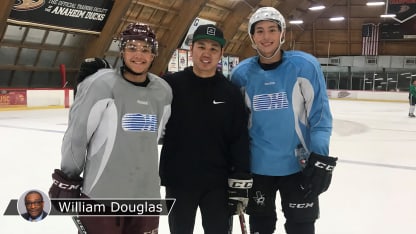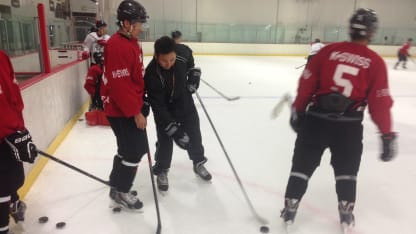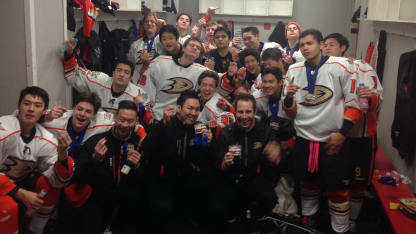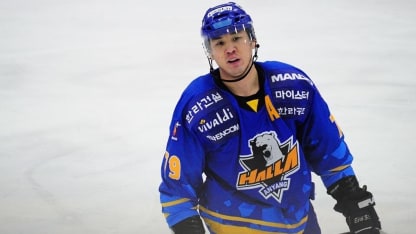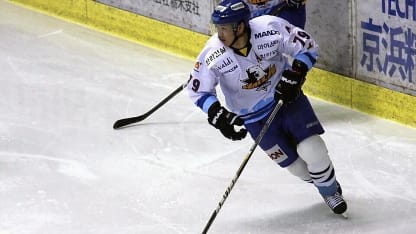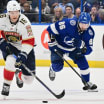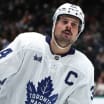"I think part of it was getting to understand the culture my parents grew up in, the heritage," he said. "It was more of an identity search, to find out about myself as an individual."
Kim became a star in South Korea. He led the Asia League in scoring with 51 points (23 goals, 28 assists) in 30 games in 2007-08 and 75 points (29 goals, 46 assists) in 35 games in 2009-10.
"Hockey-wise, he was one of the best players who ever played in the Asia League," said Choi, who lived and played in South Korea until he was 11 years old.
Kim is so highly regarded in South Korea that he's returned over the years to conduct hockey schools there. In 2014, he helped arrange for Korea University hockey players to visit Southern California and train with him and coaches from the Ducks' development staff.
He retired in 2012-13 after playing in Austria and almost immediately went into skills development training and coaching, which he'd already been doing as a player in helping teammates. Johnson, director of coaches for the Jr. Ducks and a member of the Kings' development staff, observed Kim working with players and hired the Ducks' Under-16 AAA in 2014-15.
"He's very organized, he studies the game, he can see little things that guys are doing where he can help them," said Johnson, who played 557 NHL games with the Ducks, Kings, St. Louis Blues, Toronto Maple Leafs and Washington Capitals from 1994-2004. "He's willing to go outside the box a little bit, which I think is really important in development. He pushes them out of their comfort zone."
Choi, who moved from South Korea to pursue a hockey career, said Kim always pushed him when he played for the Jr. Ducks in 2014-15. But he came to understand later that Kim was preparing him for the future.
"He always tells me stories of how it was not easy to play hockey as an Asian-American in the states," said Choi, who finished with four points (one goal, three assists) in 17 games as a freshman this season at Connecticut College, an NCAA Division III school. "I think he saw himself in players like me. I think that's why he helped me, because he knew how tough it is to be an Asian-American hockey player."
